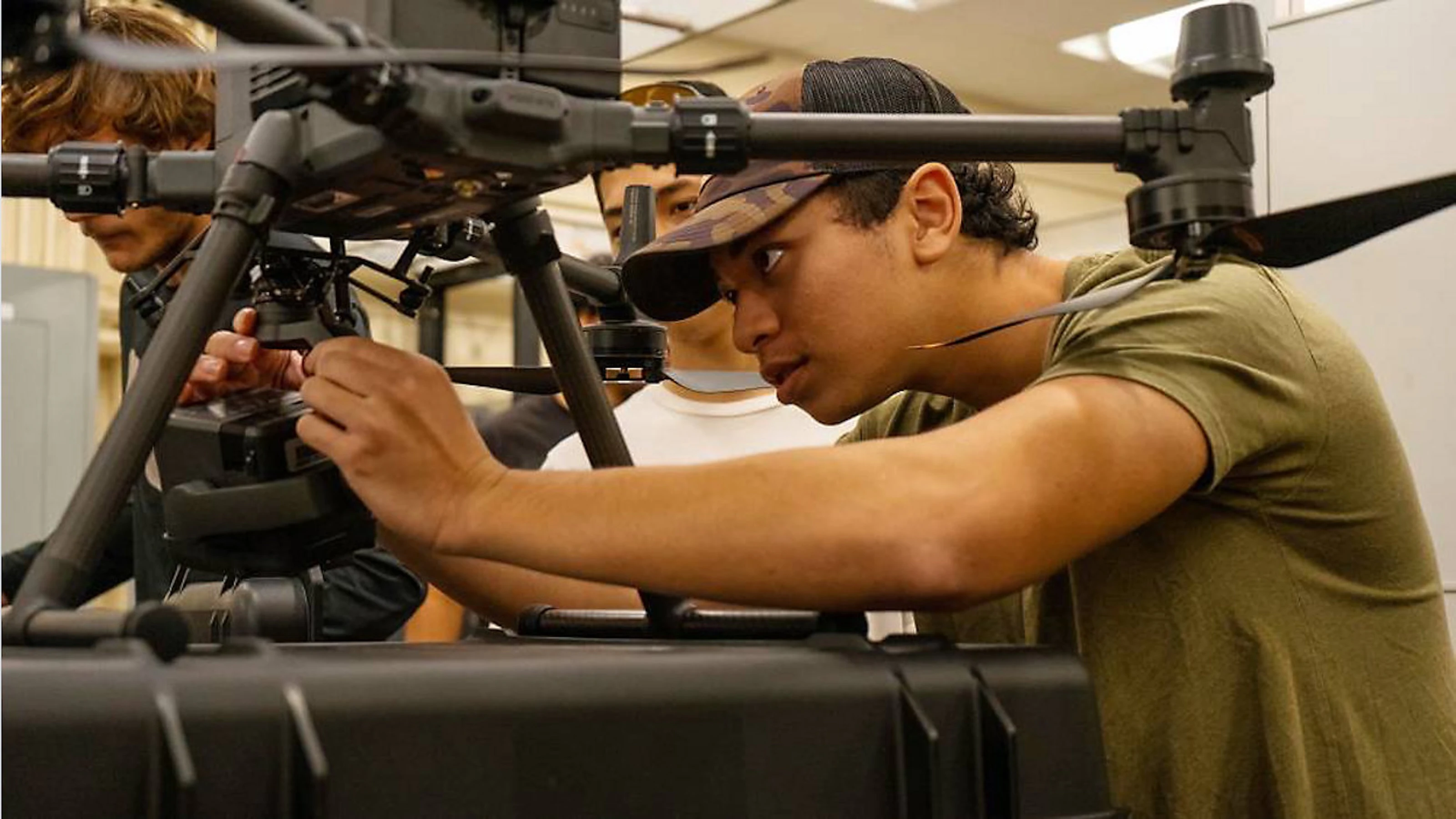Drone popularity has gone up in the last decade, as has an interest in flying them for a living.
To help train emerging pilots in Hilo, Hawaii Community College offers a 16-week drone certification program that prepares students for the Federal Aviation Administration test and provides them with hands-on training across industries. Program Administrator Paul Agamata said one goal is to teach every day lessons that they can apply in their own backyards.
“We’re trying to make them homegrown,” he said. “I have graduate students that went through the program, got their licenses and are coming back to teach classes while they work.”
Born and raised on Hawaii Island, Agamata has more than 30 years of information technology experience and works as a business consultant. At age 17, he got into flying model aircrafts and later, found flying drones to be just as fun (after receiving his commercial pilot’s license). He moved back from the Mainland six years ago to be closer to family and eventually retire. But that’s when he helped cast the vision for combining S.T.E.M. and drone operations into a college curriculum, he noted.
“Drones are a tool that really makes your job a lot easier. It’s not there to replace anybody, but it’s there to mitigate the costs of trying to do this using more historical means like regular helicopters or airplanes,” he said. “For this generation of students, you have to make the work sexy.
“I tell them, ‘If you’re just thinking about flying, that’s not where the money is. Anybody can fly. It’s how you integrate it into your day-to-day job.’”
The pilot program, which launched in fall 2023, received a three-year grant of $650,000 from the U.S. National Science Foundation toward new equipment and its upkeep. Agamata said the overall response to it has been “very positive and everyone wants to jump on board.”
Classes have reached capacity, ranging from 16 to 30 seats at a time, with 35 graduates so far, he said.
Community partners like the U.S. Department of Agriculture, the state Department of Land and Natural resources and Hawaii County Civil Defense have added value to the program, which takes students beyond the classroom to practice on the job in the areas such as conservation, agroforestry management, public safety, construction and more.
“The students are on fire. It’s hard to pull them away from the technology,” Agamata said. “We want to get embedded in technology on the island of Hawaii and expand our partnerships. … If we’re going to partner, it needs to be meaningful to the partner, too. There’s got to be a need.”
The program is scaling to include employment opportunities in agriculture and media production, as well.
He added, the community college is in the process of expanding the program, including the curriculum and equipment, to Hawaii Community College – Palamanui in Kailua-Kona. “We found an instructor over there, but we need to find more people. I think finding the right set of people that have the capabilities of teaching this is important.”
Agamata is also excited that HCC applied for a $1 million grant for “phase two to grow the drone certification program over the next three years," he said. They expect to know by summer if they received the funding.
“For the local economy to do well, we must keep our most important assets here at home. I really emphasize that they can make a difference.”
How to legally operate drones in Hawaii
To fly a drone as a commercial pilot, you are required to follow the Federal Aviation Administration’s Small Unamed Aircraft Systems Rule (Part 107), which includes passing the FAA’s Aeronautical Knowledge Test to obtain a Remote Pilot Certificate.
Hobbyists are required to take the FAA'sThe Recreational UAS Safety Test (TRUST). You are also required to follow the FAA’s recreational model aircraft rules. One of those rules is that if your drone weighs more than 0.55 lbs (250g), you’ll need to pay $5 to get it registered.
Refer to the FAA or state Department of Transportation for more rules and regulations.
Kelsey Kukaua Medeiros can be reached at kelsey@alohastatedaily.com.





